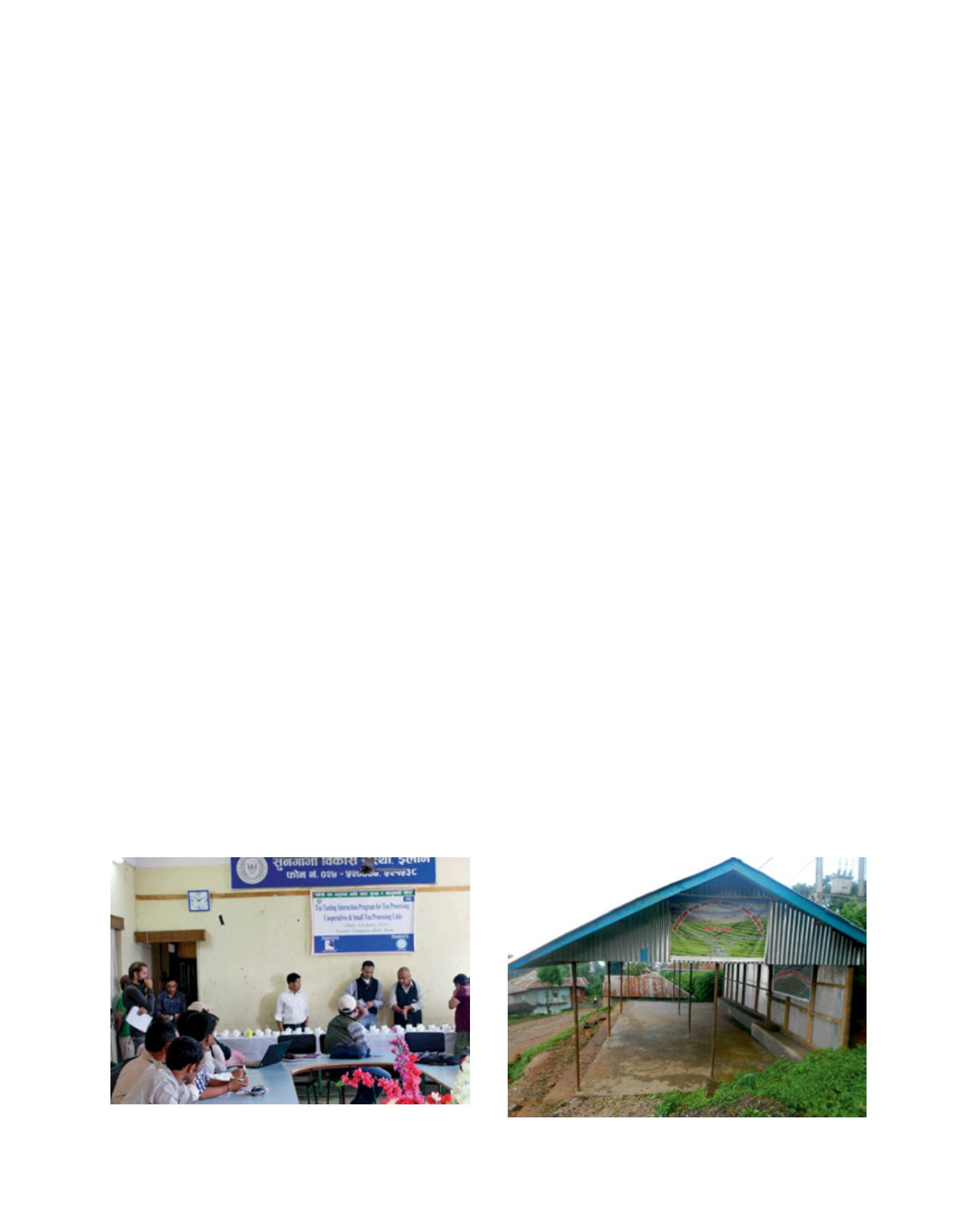

[
] 158
These challenges include a lack of infrastructure and access
to market, as well as a lack of the technical human resources
and production inputs (fertilizers, manure, equipment and so
on) the family farmers need. The rural population is ageing
due to the migration of younger generations to urban centres,
and this is reducing the number of young people involved in
agriculture. There is also a lack of participation among small
farmers in decision-making processes and policy formulation.
Market prices are volatile due to factors such as the monopoly
of big tea processing factories and inequitable trade practices.
In addition, there is a lack of policies and institutions that
facilitate and strengthen the family farming of tea.
CTCF currently engages to address these family farming
issues through activities such as lobbying and advocacy, capac-
ity building, marketing linkages, monitoring and coaching.
CTCF’s lobbying and advocacy activities aim to:
• organize policy dialogue with stakeholders from
grassroots to central level, in order to increase and
encourage investments in small tea family farming
• lobby and advocate to amend the national tea policy 2000
and assure the representation of small tea farmers in the
decision-making process
• ensure the guarantee of soft loans, incentives, marketing,
the development of a pricing mechanism for raw materials
and inputs and fair trade
• organize interactions between policymakers, local
governments, donors, non-governmental organizations
and rural farmers to improve the tea family farming
culture in Nepal
• lobby the Government to secure the market for the small
farmers’ production.
In terms of marketing, CTCF aims to ensure the improve-
ment of quality through training and coaching for tea farmers.
CTCF monitors evaluation tea tasting sessions in every tea
growing district, to ensure the quality of teas produced by
small family farms. It also works to build linkages with other
value creators in the value chain, as well as incorporating
buyers and helping processors to negotiate business deals and
transactions. CTCF provides support for small farmers to sell
their produce collectively from a common platform. With the
support of CTCF, national and international tea buyers have
become interested in buying tea from cooperatives, and they
have already started to buy in small quantities.
CTCF seeks to increase the livelihoods of family tea
farmers in several ways. It provides support to help estab-
lish mini processing units and works to build the capacity
of youth and farmers by exposing them to new technologies,
organic farming methods, processing methods, tastings and
cooperative awareness. CTCF provides support to help tea
cooperatives produce a business plan and to address the prob-
lems faced by their farmers. In addition, CTCF supports tea
cooperatives in obtaining soft loans from different financial
institutions and banks, on minimum interest rates. It also
supports the development of savings and credit systems and
their use by cooperatives. Unemployed youths are encouraged
to become involved in family farming with tea, and success-
ful family farms are promoted in order to encourage young
people in sustainable agriculture. In addition, CTCF works
to sensitize beneficiary farmers to the issues of food security
and sovereignty, and to sensitize local and national media to
the issues, importance and achievements of family farming.
Farmers are getting soft loans from the Nepal Rastha Bank
and the Youth Self Employment Fund with the support of
CTCF, and they are using these funds to increase productivity
in a sustainable manner with additional livestock and manure
production.
Social protection another important challenge for family
farmers. CTCF’s main priorities are small farmers, females,
marginalized people, Dalits and other ethnic groups in rural
areas. CTCF is working to sensitize primary cooperatives
so that they recognize social protection issues and address
them by providing education, training and information. It is
also conducting leadership training for women, so that they
can become more involved in the decision-making process.
Awareness training is provided for marginalized people, to
enable their involvement in cooperatives.
Since CTCF was formed, the price of the green leaf sold by
the small farmers to the factories has increased by more than
35 per cent. The small farmers have increased their income
and invested in better education, health, and improved living
standards with adequate sanitation.
A tea tasting session, with CTCF monitoring the quality of teas produced
by small family farms
The green leaf collection centre of Boarboteli Tea Cooperative Society in Ilam
Image: CTCF
Image: CTCF
D
eep
R
oots
















